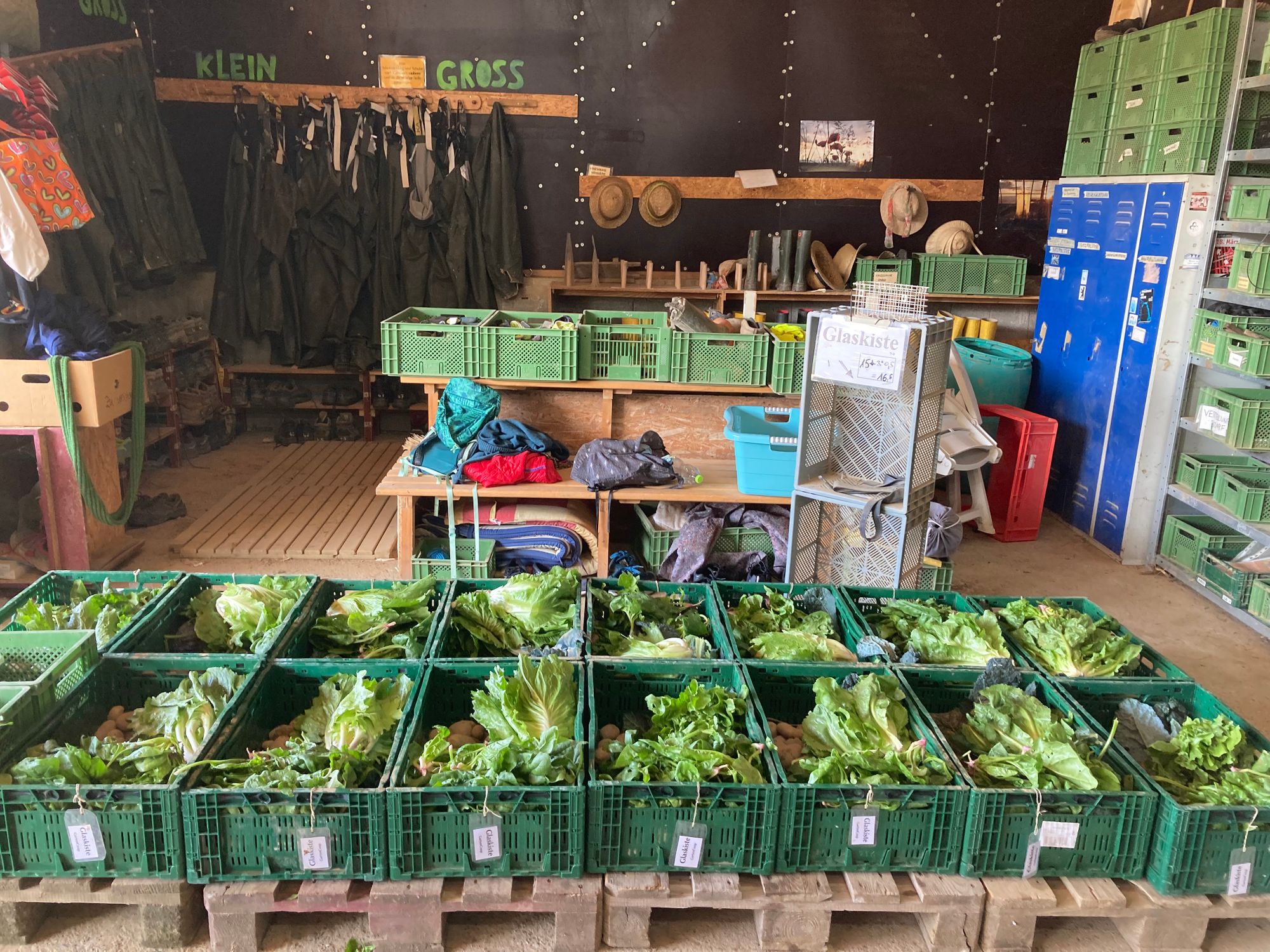This short contribution summarises a recently published paper for social science researchers working on the intersection of degrowth and agri-food. In what follows, we outline four research avenues that deepen, expand, and diversify degrowth research on agri-food systems.
Today, our societies are facing a number of interconnected crises, from climate change and biodiversity loss to growing inequality, social upheavals, and pandemics. This has led to discussions and criticisms of endless economic growth, as well as ideas for post- or degrowth societies. Degrowth has become a well-known paradigm to identify and criticize systemic problems that stem from the capitalist, growth-driven economy. Degrowth is also being increasingly discussed in relation to specific economic sectors, like the agri-food system. Most notably, Gerber (2020) has started to explore the growth question in terms of agrarian change and the sustainability of agri-food systems, and Nelson and Edwards (2021) have pointed out the relevance of degrowth for finding alternatives to industrial, capitalist agri-food systems. Still, there is a lot more to be explored. In a recent article, Guerrero Lara et al. (2023) take stock of the growing body of literature on degrowth and agri-food systems and suggest ways to deepen, expand, and diversify degrowth research on agri-food systems in four areas:
Degrowth conceptualisations. There is no single understanding of degrowth. Instead, it is a multifaceted concept with many different intellectual roots. Thus, degrowth research on agri-food systems has used a wide range of degrowth conceptualisations. These include different degrowth principles and sometimes refer to degrowth as a movement, theory, or political program. Current research tends to put some ideas about degrowth in the spotlight while hiding others. Yet, how researchers understand, read, and think about degrowth is important because it has a huge effect on how research is done, what is analysed, and how the potential for transformative change is thought of. For example, most studies of degrowth only look at its social principles and not its environmental ones. So, it is very important to look into the ecological and material throughput of alternative agri‑food initiatives. Besides, thinking of degrowth as a social movement or a set of policies (rather than just as a practice) can help us understand how agri-food systems can be changed to be more in line with degrowth.
Theorising about transformations towards sustainability. In research on agri-food systems and degrowth, there hasn't been a rigorous explanation how change towards degrowth comes about. Thus, it can learn from critical perspectives within the scholarship on sustainability transitions and transformation. Also, degrowth research on agri-food systems needs to pay more attention to the multiplicity of change agents beyond single, grassroots initiatives, such as formal and informal translocal networks, for instance the peasant movement “La Via Campesina”. Engaging with the literature on the more-than-human and its role and agency in politics and societal changes would further add to degrowth research on agri-food systems.
The political economy of degrowth agri-food systems: recentring capitalism. Being part of a capitalist agri-food system puts grassroots actors at a high risk of being co-opted, by corporate interests or the government, which may appropriate and conventionalise a watered-down version of their practices. Thus, it is essential to investigate how the risk of capitalist co-optation can be reduced. Furthermore, there needs to be an in-depth examination of how specific capitalist institutions and practices that govern agri-food systems hamper and slow down the transition to degrowth. Lastly, researchers who are interested in both degrowth and the agri-food system should keep in mind that capitalist logics are present in all parts of society and are not limited to the political economy of food. Consequently, there is a need to explore the potential that a systemic degrowth transformation holds for agri-food systems.
Rurality and degrowth. Even though degrowth visions recognise the importance of the countryside for societal changes, degrowth research on agrifood systems has mostly focused on urban and peri-urban areas and has ignored questions of rurality. In particular, degrowth scholars have been silent about how degrowth could "speak to," or learn from and listen to, different rural populations, or how urban and rural livelihoods could be reconnected in degrowth agri-food systems.
Together, these avenues pay attention to a wide range of agents (from translocal networks to non-humans), spaces (e.g. the rural), theories (e.g. sustainability transitions and transformations toward sustainability), and policies (in the agricultural sector and beyond) that haven't gotten much attention in the degrowth literature so far. Thus, degrowth research on agri-food can be enriched with well-established approaches to agri-food studies, social movement scholarship, critical transformation research, and other fields that haven't been used much in degrowth research. The critical social science perspective on degrowth agri-food systems shows that the current unsustainability and injustice of hegemonic agri-food systems are not just problems of that sector. Instead, they are rooted in social ideas about how economies and societies should work, as well as in the political-economic structures that support and reproduce these ideas.
----------------
The full paper ‘Degrowth and agri‑food systems: a research agenda for the critical social sciences’ was published in Sustainability Science and is available in open access here. This research is part of the research programme UNMAKING.

